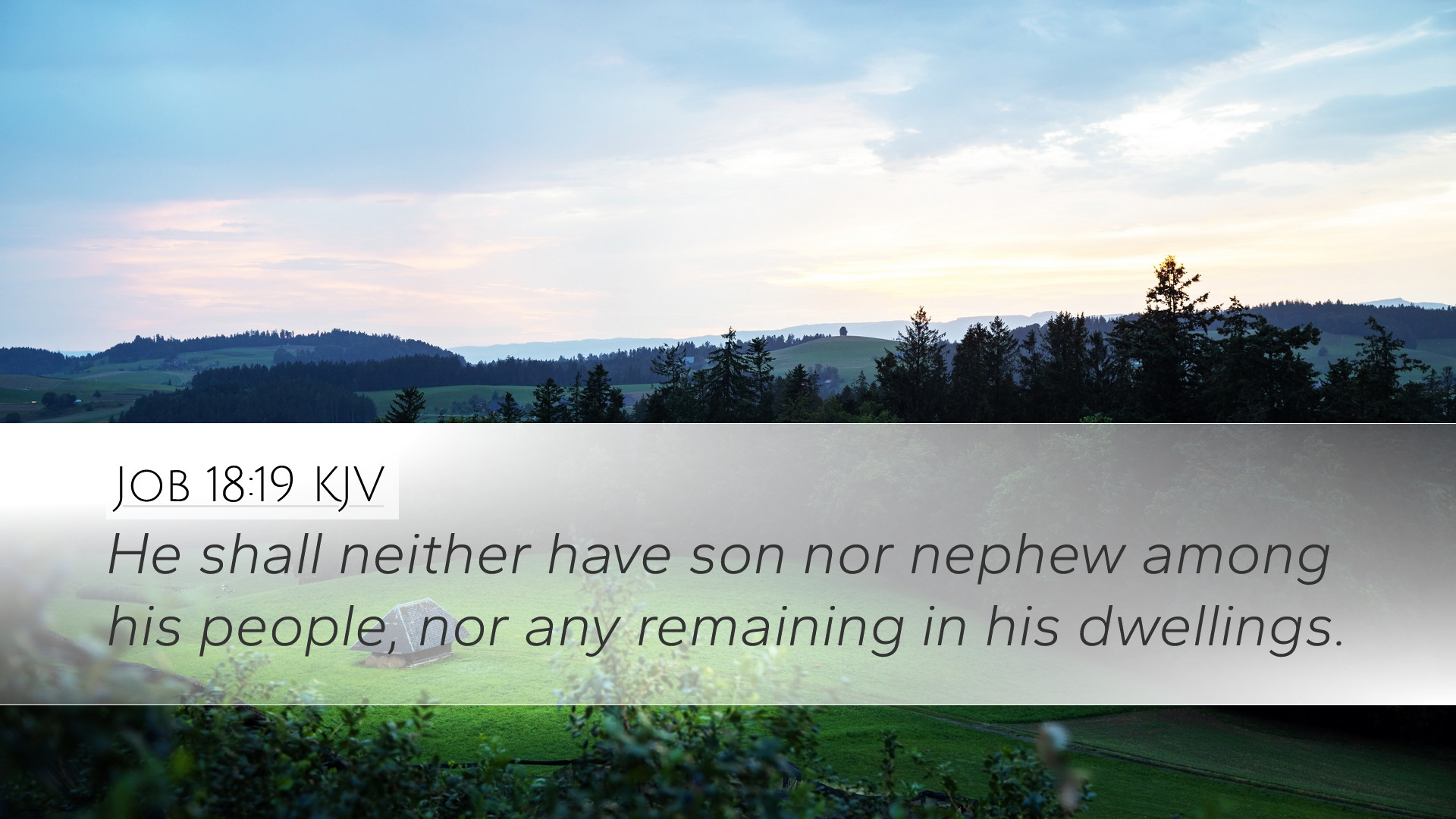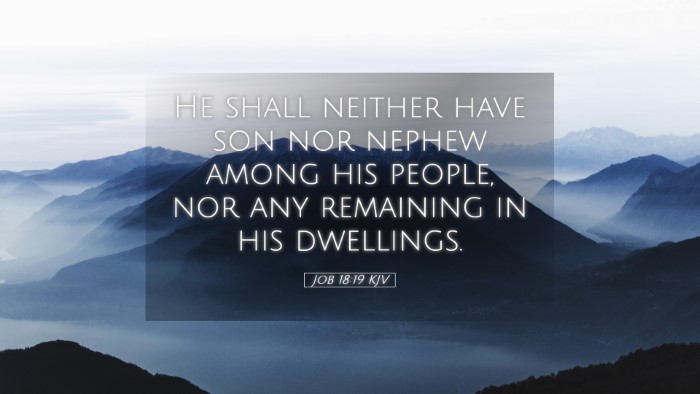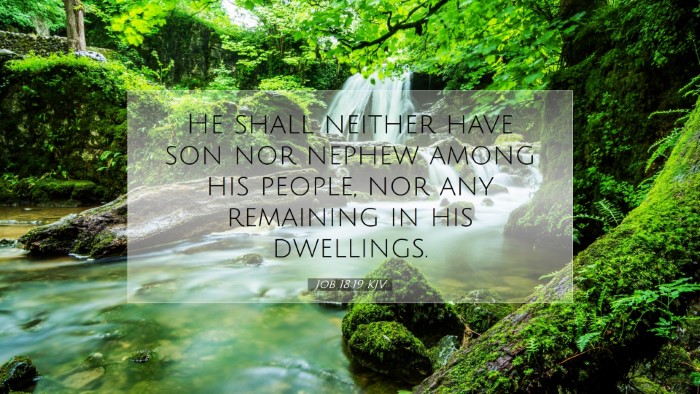Old Testament
Genesis Exodus Leviticus Numbers Deuteronomy Joshua Judges Ruth 1 Samuel 2 Samuel 1 Kings 2 Kings 1 Chronicles 2 Chronicles Ezra Nehemiah Esther Job Psalms Proverbs Ecclesiastes Song of Solomon Isaiah Jeremiah Lamentations Ezekiel Daniel Hosea Joel Amos Obadiah Jonah Micah Nahum Habakkuk Zephaniah Haggai Zechariah MalachiJob 18:19
Job 18:19 KJV
He shall neither have son nor nephew among his people, nor any remaining in his dwellings.
Job 18:19 Bible Commentary
Commentary on Job 18:19
Job 18:19 states: "He shall neither have son nor nephew among his people, nor any remaining in his dwellings." This verse is part of Bildad's discourse, who speaks against Job and elaborates on the fate of the wicked. Various public domain commentaries offer rich insights that are valuable for pastors, students, theologians, and Bible scholars.
General Context
The Book of Job is an exploration of suffering, righteousness, and divine justice. Job, a man of integrity, faces tremendous suffering, leading to a dialogue with his friends, who seek to explain his misfortunes through the lens of retribution theology—a belief that good is rewarded, and evil is punished in this life.
Commentary Insights
Matthew Henry
Matthew Henry emphasizes the dire consequences awaiting the wicked, underscoring that those who oppose God will find themselves cut off from future generations. In his analysis, Henry notes that Bildad’s assertions can be seen as reflecting the traditional wisdom of the time while simultaneously misapplying it to Job. He argues that Bildad infers from Job’s suffering that he must be a wicked man, whereas Job's affliction might indeed be for other divinely ordained reasons. Henry also points out that the “son or nephew” being absent suggests complete familial annihilation, a fate that Bildad insists upon for those who have sinned against God.
Albert Barnes
Albert Barnes elaborates on the notion of having no descendants, which he describes as one of the most significant curses in ancient Near Eastern culture. He notes that lineage and family continuity were paramount in that society. To have no children or heirs is to be utterly disgraced and removed from the community's collective memory. Barnes explains that Bildad’s remarks illustrate not just individual judgment but a communal view that supports the larger framework of divine retribution. This reinforces the idea that the prosperity of the ungodly is temporary and, in contrast, the wicked will face ultimate destruction.
Adam Clarke
Adam Clarke offers a more technical analysis of the verse, focusing on the original Hebrew terms. He explores the implications of "neither have son nor nephew," suggesting a total and irrevocable disconnection from future generations. Clarke notes that the slave’s fate—being seeped in disgrace—reflects the judgment which Bildad argues divine justice entails for the unrepentant. Clarke also contextually places this verse within the broader scope of the poetic dialogues where human understanding of God's justice is challenged. He comments on how the flawed reasoning of Bildad ultimately leads to mischaracterizing Job’s integrity.
Theological Reflections
This verse exemplifies the tension between human perceptions of justice and the complexities of divine providence. Pastors and theologians may consider the implications of such declarations upon the faithful and the struggle against a simplistic understanding of suffering. The application lies in recognizing that affliction is not always a direct punishment for sin, as revealed through Job’s experience.
Implications for Ministry
- Pastoral Care: Addressing the challenges of suffering without assigning blame is crucial in a pastoral context.
- Dispelling Misconceptions: The church must be equipped to guide believers away from retributive theology toward a more profound understanding of suffering and grace.
- Encouraging Righteousness: While focusing on the dangers of wickedness, it is equally vital to encourage faithfulness and perseverance in trials.
Conclusion
Job 18:19 serves as a sobering reminder of the fate of the wicked. However, it also invites deeper contemplation regarding Job’s plight and the nature of God’s justice. Through the insights of Matthew Henry, Albert Barnes, and Adam Clarke, one can construct a comprehensive understanding of this text, balancing the notion of divine judgment with grace and mercy.


